
Peking University, November 8, 2025: The Beijing Forum 2025 opened on Friday afternoon at the Diaoyutai State Guesthouse. Under the theme “The Harmony of Civilizations and Prosperity for All: Civilizational Coexistence in the Age of Digital Intelligence,” the event brought together global leaders, diplomats, and scholars to explore how technology and humanity can progress together in the digital era.

Yin Yong, Mayor of Beijing, met with important guests before the opening ceremony, among whom were diplomats from 10 countries, distinguished scholars, as well as Chinese officials. Han Qide, Honorary Chairman of China Association for Science and Technology, and Academician at Chinese Academy of Sciences, also attended the ceremony.
The ceremony was presided over by He Guangcai, Chair of Peking University (PKU) Council, who extolled the role of Beijing Forum in deepening international cooperation and facilitating academic exchange.
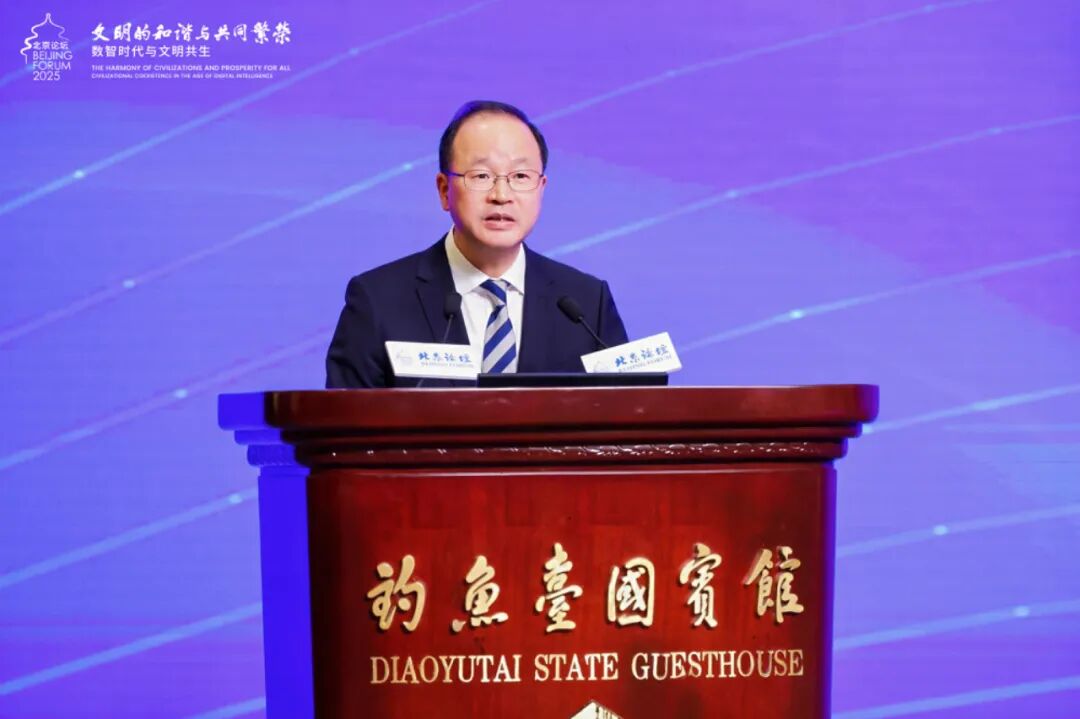
He Guangcai
Keynote speakers included Nobel Laureate Michael Levitt, Professor at Stanford University; Park Jin, Former Minister of Foreign Affairs, Republic of Korea; Michael Spence, President and Provost, University College London; Tan Eng Chye, President of National University of Singapore; and Cheng Lesong, Boya Distinguished Professor and Chair of Department of Philosophy and Religious Studies, PKU.
Gong Qihuang, President of PKU and Academician of the Chinese Academy of Sciences, started off by reflecting on Beijing Forum’s 21-year legacy of fostering global dialogue. He explained that this year’s forum responds to the challenges of balancing technological progress and human civilization. Gong highlighted universities’ role in bridging civilizations and integrating technology with humanistic education.
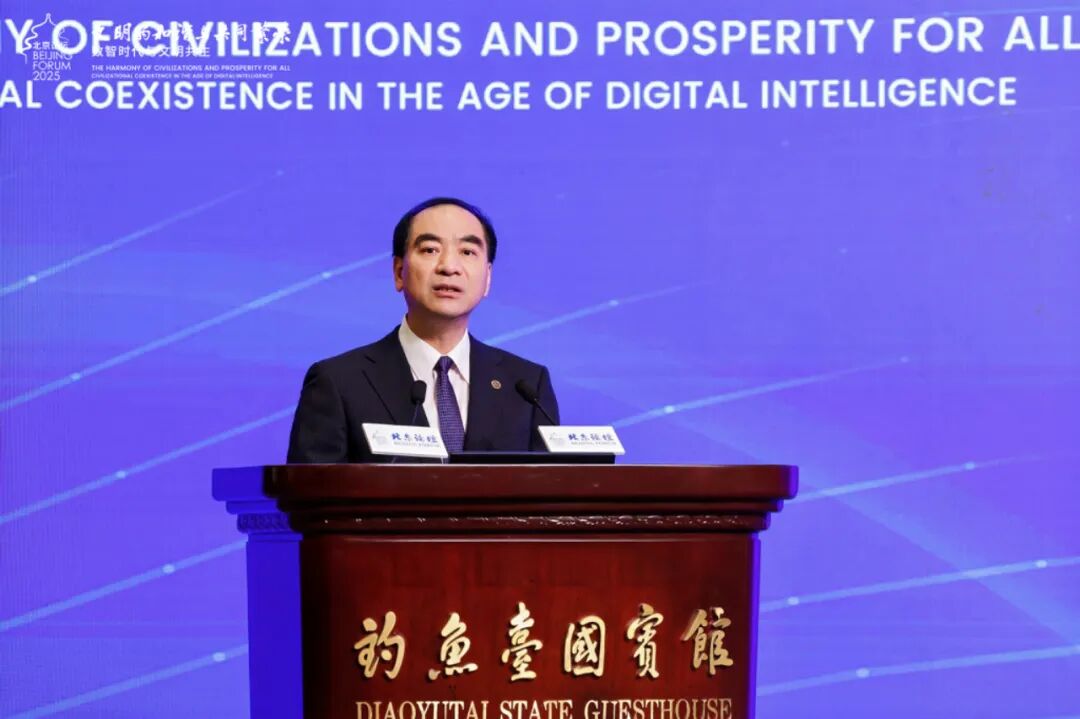
Gong Qihuang
In his video address, Chey Tae-won, Chairman of SK Group, said that AI has become a true member of society rather than a mere tool. He urged global cooperation guided by the vision of “AI for Impact,” calling on enterprises to go beyond profit-making to address social challenges.
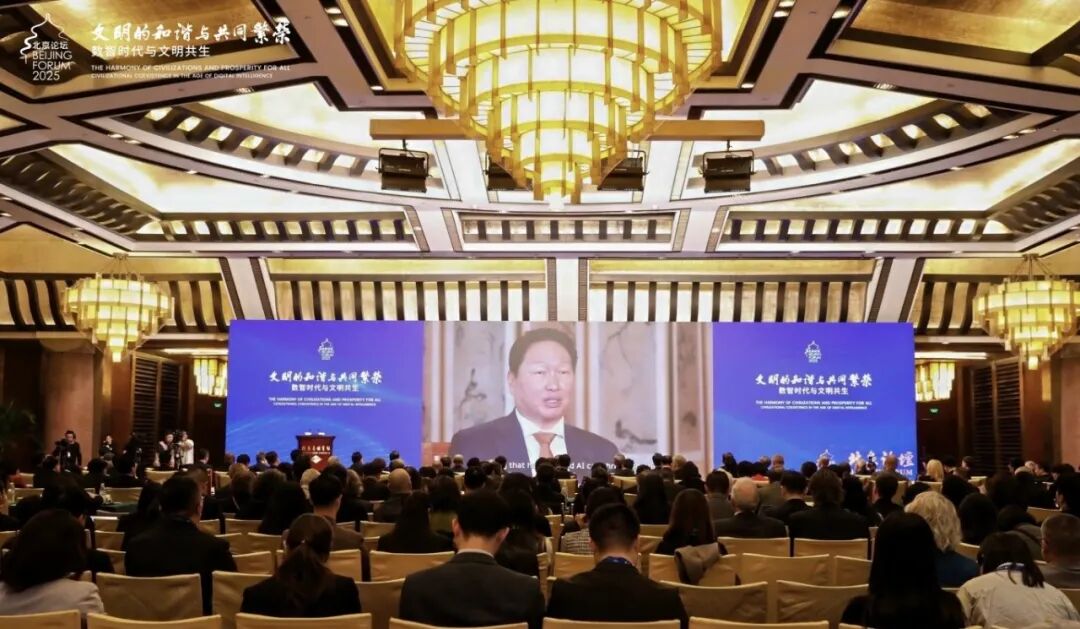
Chey Tae-won
Yu Yingjie, Member of the Standing Committee of the Communist Party of China Beijing Municipal Committee and Secretary of the Educational Work Committee of the CPC Beijing Municipal Committee, highlighted the city’s achievements in integrating science, technology, and culture under the Global Civilization Initiative. He reaffirmed Beijing’s commitment to reform and openness, aiming to contribute “Beijing’s wisdom” to global cooperation.
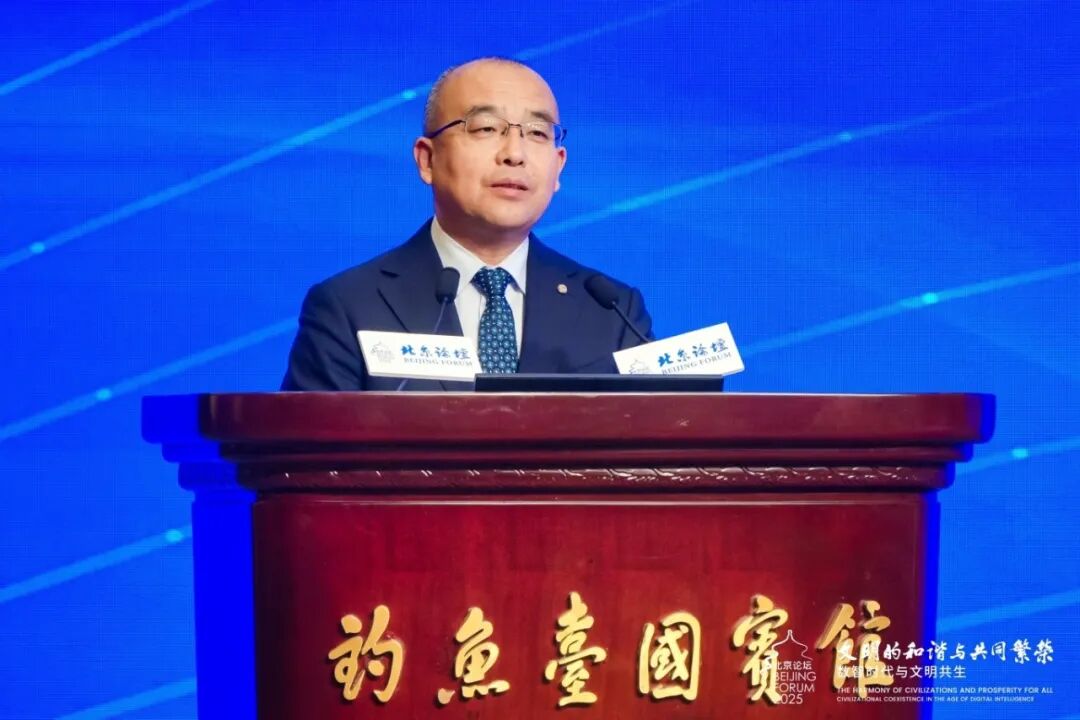
Yu Yingjie
Xu Qingsen, Member of the CPC leading Group of the Ministry of Education and Vice Minister of Education, praised the Beijing Forum for role as a platform for global academic exchange. He noted that the digital-intelligent era brings both opportunities and challenges, urging greater educational innovation to nurture youth capable of leading future development.
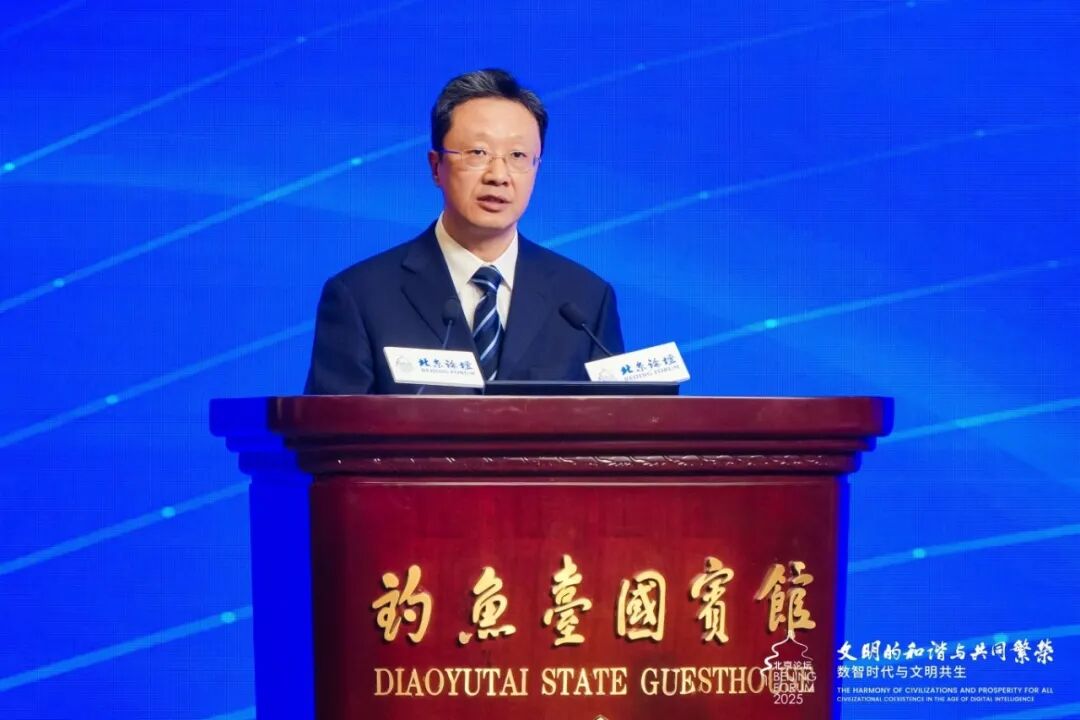
Xu Qingsen
In the keynote session chaired by Kim Yoo-suk, President of Chey Institute for Advanced Studies, speakers delved into AI’s impact on research, education, and civilization at large.
Michael Levitt reflected on how the convergence of intelligence—biological, cultural, artificial, and personal—shaped the evolution of human civilization. Drawing on 35 months of daily AI use, he described artificial intelligence as a “universal amplifier” that magnifies human creativity and reasoning. Yet, he cautioned that technology should serve human curiosity rather than replace it. Levitt urged the audience to maintain their child-like curiosity and experienced wisdom, emphasizing that true progress depends on humanity’s ability to ask questions, seek evidence, and think critically.
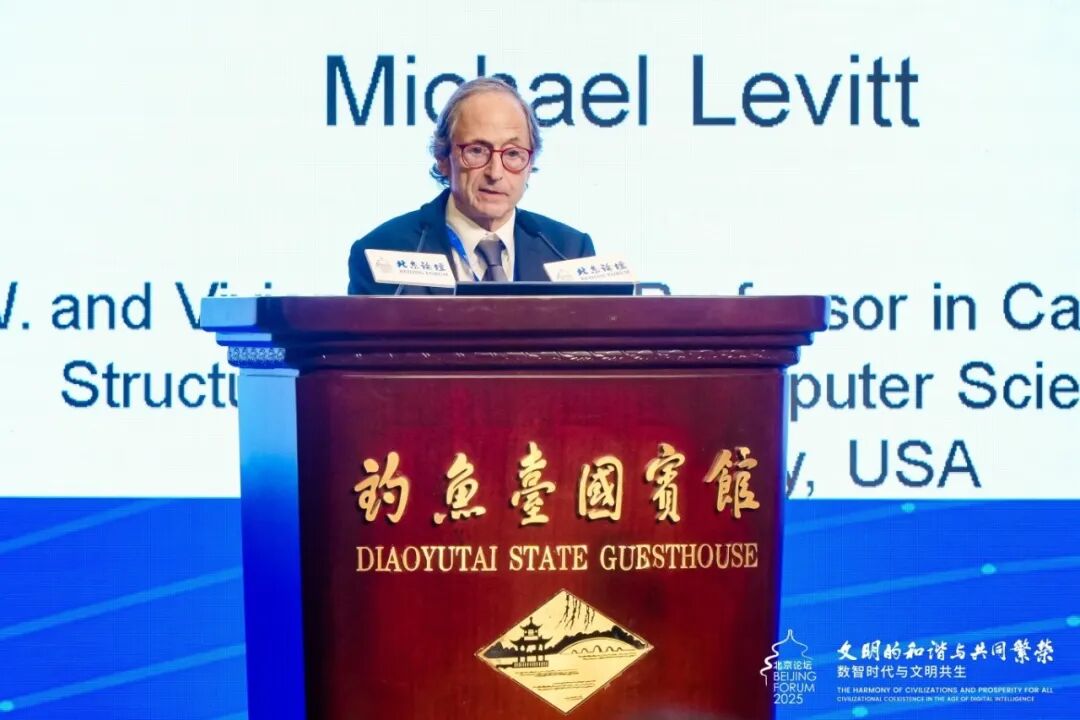
Michael Levitt
Park Jin highlighted the need for “science diplomacy” to guide AI toward harmony among civilizations. He raised AI’s global risks such as data bias and ethical misuse, emphasizing that while competition spurs innovation, only cooperation ensures sustainable progress. China and Korea, sharing strengths in science and innovation, play key roles in fostering a human-centered and inclusive global framework for AI governance, concluded Park.
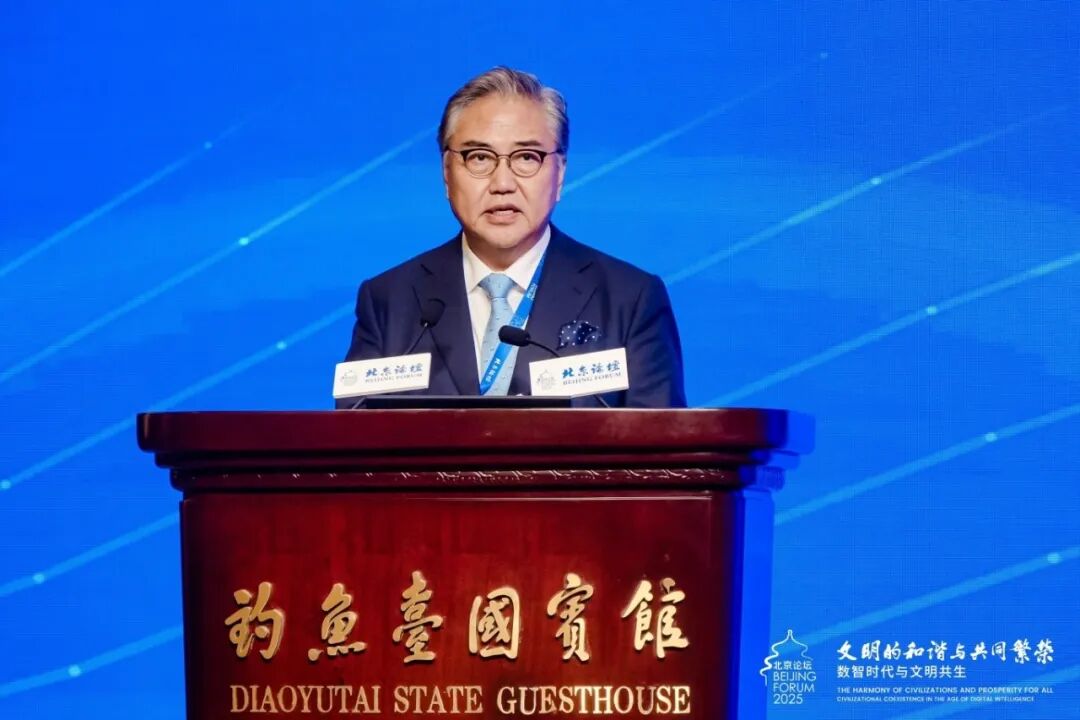
Park Jin
Michael Spence drew on UCL’s Data Empowered Societies initiative, describing projects where indigenous and local communities in Brazil, Canada, and the UK are using data to monitor biodiversity, sea, ice, and environmental waste. This illustrates how technology can serve social good when rooted in trust and transparency, Spence noted, calling for stronger regulation, data literacy, and community participation.
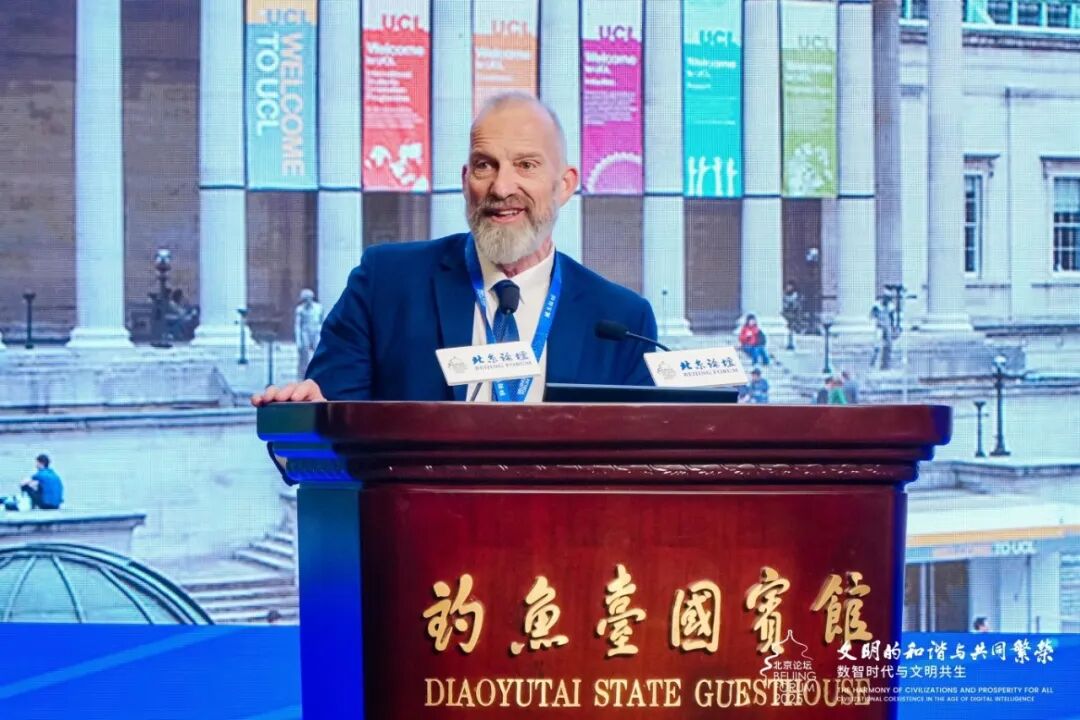
Michael Spence
Tan Eng Chye outlined the evolving role of universities as teachers, innovators, and stewards. While AI can generate knowledge instantly, universities must teach students to question and work collaboratively with intelligent tools, said Tan. As innovators, he said, universities should build global research partnerships that enhance human flourishing. For example, according to Tan, AlphaFold AI’s prediction of over 200 million protein structures has saved “one billion PhD years.” Finally, Tan emphasized that as stewards, universities must ensure ethical responsibility and social cohesion so that technology serves humanity—not the other way around.
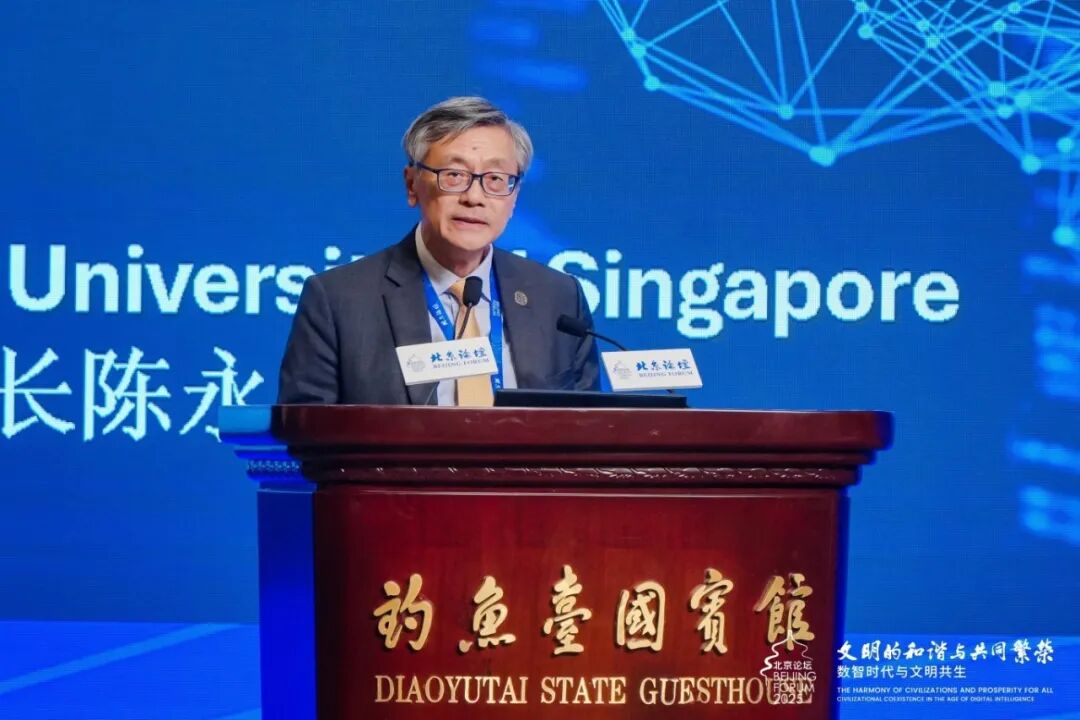
Tan Eng Chye
In the final keynote address, Cheng Lesong observed how technology is reshaping life and value systems, instilling both hope and anxiety. He warned against “reverse value alignment” in which human ethics are reshaped by technology. True progress, Cheng emphasized, requires restraint, ethical awareness, and a renewed sense of boundaries. “The technological revolution should do mankind benefit instead of harm…Coexistence between mankind and technology means humans should be able to live a meaningful and dignified life.”
At the opening ceremony, Dominique Barjot, President of Sino-French Institute, along with Michael Spence and Tan Eng Chye became the latest members of Beijing Forum Senior Advisory Council.
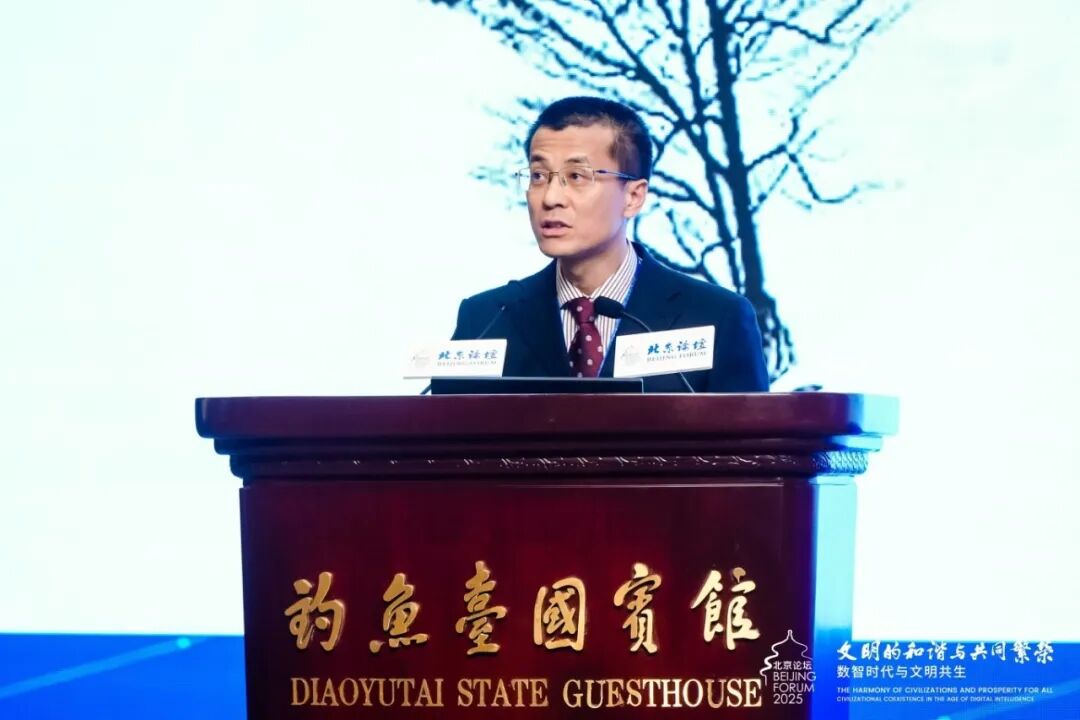
Cheng Lesong
Jointly sponsored by Peking University, Beijing Municipal Education Commission, and the Chey Institute for Advanced Studies, the Beijing Forum was inaugurated in 2004, and has retained an overarching theme of “The Harmony of Civilizations and Prosperity for All” for each succeeding forum.
To date, more than 7,000 distinguished dignitaries and scholars from around the world have convened in Beijing for the forum, contributing their wisdom to the betterment of all members of the global community.
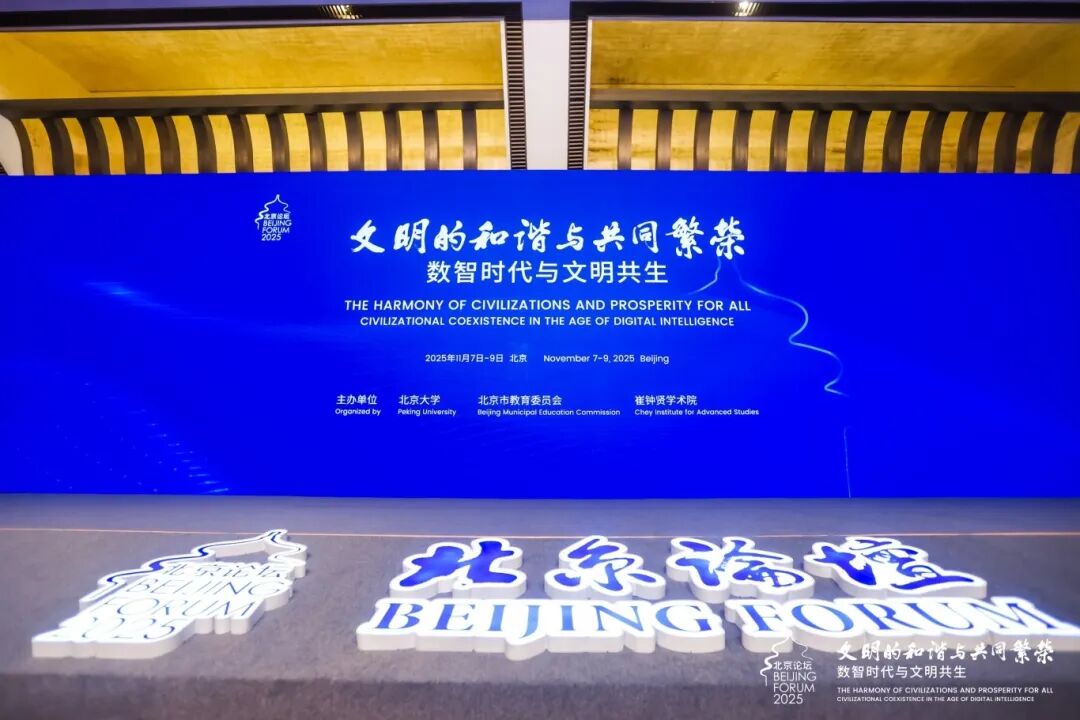
Held from November 7 to 9, Beijing Forum 2025 comprised 13 panel sessions, along with 2 symposia and 2 global forums. Topics spanned the discipline spectrum, from the humanities to medicine and global governance, with discussions dissecting how technology is reshaping every aspect of our world.
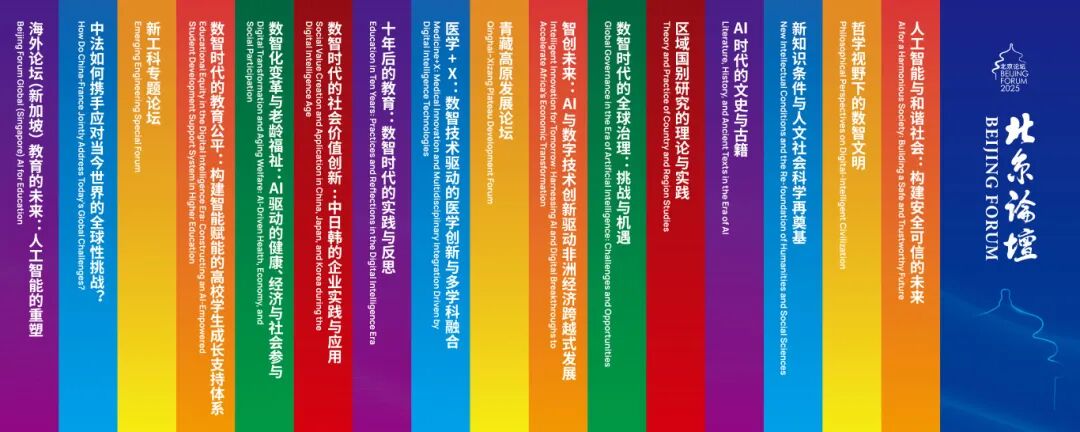 Written by
Written by: Ashley Leung
Photos by: Gao Zihan, Guo Mengjiao, Zhu Chengxuan, Xiang Tingyan, Wang Tiantian, Li Xianghua, Liu Yan, Qi Liang, Song Boning
Edited by: Chen Shizhuo













